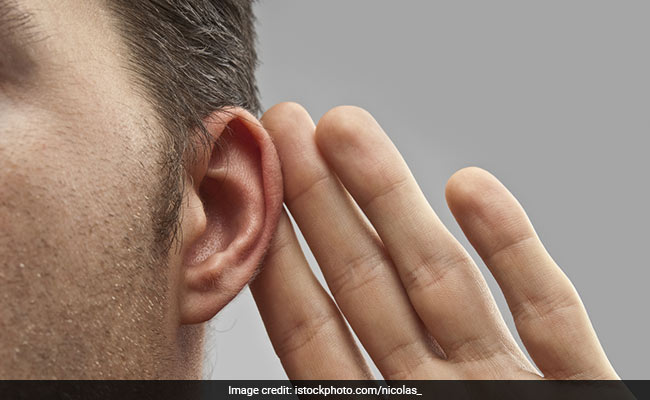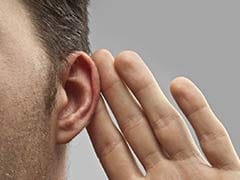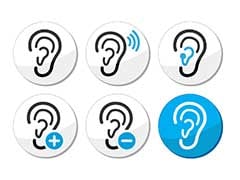The cochlear implant is an electronic device that stimulates the cochlear nerve, picking up sounds with a microphone, processing it, and transmitting the sound to the internal part of the implant.

Cochlear implant can help people with impaired hearing
It may not be a disability you can spot easily, however, hearing disability impacts the lives of those battling it in profound ways. It is the most common sensory deficit in humans today. And as per WHO estimates in India, there are approximately 63 million people, who are suffering from significant auditory impairment. This means 6.3% of the country's population is hearing impaired. Children between the ages of 0 and 14 years make up a large percentage of this population.
According to experts, recent advancements in hearing technology have been groundbreaking and can greatly benefit those with hearing impairment, especially children. Unfortunately, the ground reality is that due to low awareness and lack of easy access to screening facilities for babies, this opportunity is often missed. Early intervention through diagnosis and early treatment is crucial in order to help those with varying degrees of hearing loss. The good news is, both children and adults who have severe to profound hearing loss in both ears, where even wearing hearing aids do not give good results, can benefit from cochlear implant surgery. New criteria even include people who have lost some frequencies of sound more and can hear sound when it's loud but cannot understand it.
What is a cochlear implant?
The cochlear implant is an electronic device that stimulates the cochlear nerve (nerve for hearing), picking up sounds with a microphone, processing it, and transmitting the sound to the internal part of the implant. A tiny electronic device, the size of a Bluetooth earpiece, can make a huge difference in the life of someone battling hearing loss. Over the years, there has been tremendous advancement in the technology behind cochlear implants. The new cochlear implant is smaller, lighter in weight, easier for the surgeon to fix securely, and electronically smarter, enabling the implanted device to send diagnostic information back to the external device.
Currently, India has over 200 state-of-the-art cochlear implant centers, with top-notch surgeons as well as well-equipped habilitation units. Almost 30,000 implants have been done in India, with one million children still awaiting implants. The younger the age of the recipient of the cochlear implant, the better the outcome. Research has shown that implantation at a young age is highly beneficial and important for language development. Therefore, it is very important to spread awareness about the fact that cochlear implants have the potential to positively impact the lives of millions of people battling hearing loss and consult an ENT specialist or a cochlear implant surgeon to undergo the requisite tests to ascertain if cochlear implant surgery is a viable option.
The ground reality in India
The ability to hear has a huge influence on a child's development, especially learning of language and contextual understanding. In rural areas across the country, the problem is even more acute as there is a lack of awareness about the causes of hearing loss and how to deal with it. This is why the Universal Newborn Hearing Screening (UNHS), a test to detect hearing impairment in newborn babies is crucial. It can help in the early detection of congenital hearing loss and ensure early intervention.
India has not yet implemented any dedicated early hearing detection and intervention program at the national level. However, various state governments have introduced measures.
There is constant research being done to advance the field of cochlear implant surgery, right from the insertion of totally implanted cochlear implants without any external devices to attempts to insert stem cells into the cochlea to replace surgery. With awareness about hearing loss, early intervention, innovation, and rapid technological advancement, there is hope for those battling hearing loss to lead normal lives.
(The author of the article, Dr. Sandra Desa Souza, is the pioneer of cochlear implant surgery in India, with over 35 years of experience in the field. She is also the co-author and editor of the new book, ‘Cochlear Implants: New and Future Directions')
Disclaimer: This content including advice provides generic information only. It is in no way a substitute for a qualified medical opinion. Always consult a specialist or your own doctor for more information. NDTV does not claim responsibility for this information.
DoctorNDTV is the one stop site for all your health needs providing the most credible health information, health news and tips with expert advice on healthy living, diet plans, informative videos etc. You can get the most relevant and accurate info you need about health problems like diabetes, cancer, pregnancy, HIV and AIDS, weight loss and many other lifestyle diseases. We have a panel of over 350 experts who help us develop content by giving their valuable inputs and bringing to us the latest in the world of healthcare.














